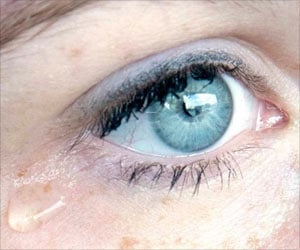Variations in ABTB1 are associated to performance on a standard memory task, and variations in the gene GRB10 are an important player in determining the link between Mediterranean diet and memory performance.

‘Scientists have identified a number of genes that are active in nutrient-sensing pathways and demonstrated these genes also show associations to performance on memory tasks.’





Using a combination of laboratory-based techniques and analysis of data on people's memory, diet and level of physical exercise, researchers identified in data from over 2000 individuals. The study identified that the genes ABTB1 and GRB10 were both influential in nutrient sensing pathways and showed association to memory. Advances in medicine and healthcare over the past century have led to increased life expectancies. However, ageing is still accompanied by frailty and a decline in our thought processes. This level of decline varies enormously across individuals and an improved understanding of what influences these ageing mechanisms could help develop strategies to increase "healthspan", which is the period of time free from debilitating disease.
Previous studies have indicated that neural stem cells (NSCs) in the hippocampal part of the brain play an important role in the decline of our thought process and memory over time. NSCs are cells that keep dividing as long as they are alive and either make more NSCs or cells that have a specialist function in the brain. The maintenance of these NSCs is important in memory and is affected by environmental factors such as diet and exercise, potentially explaining some of the variation in how ageing affects different people.
Although the role of nutrient-sensing-pathways in ageing and the maintenance of stem cells in the brain have been investigated in animal models, no human studies have so far investigated their role in NSCs in the hippocampus.
The study aimed to explore whether nutrient-sensing pathways can provide the molecular basis for the association between lifestyle and ageing. These pathways have been implicated in stem cell maintenance, suggesting they could also be involved in the interaction between lifestyle, NSCs and cognition.
Advertisement
Senior author, Sandrine Thuret from the IoPPN said: 'Finding the means to prevent or slow down the processes that drive the decline of our thought processes during ageing is one of the great endeavours of the 21st century. To our knowledge this is one of the first studies looking at these relationships with human data and adopting this back-translation approach which uses lab-based experiments to inform research on large datasets, allowing for a more targeted approach.'
Advertisement
Researchers analysed the molecular and genetic mechanisms by exposing human NSCs to serums from either young or old individuals and to chemicals whose effects mimic the ageing process. The genes identified from the in vitro analysis as important in nutrient-sensing-pathways were then associated with genetic data from over 2000 individuals from the TwinsUK cohort and data on performance on the Paired Associates Learning(PAL) task which assesses visual memory and learning, healthy eating, Mediterranean diet, calorie intake and physical activity.
Source-Eurekalert















